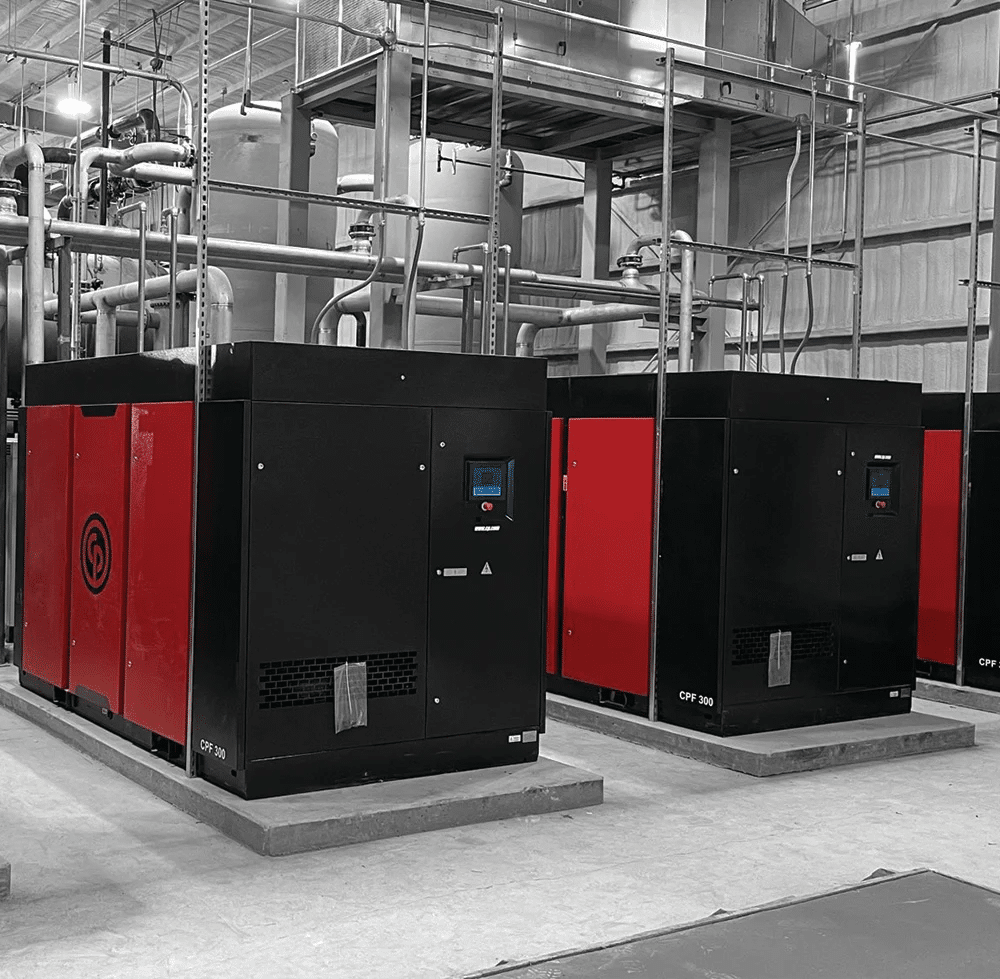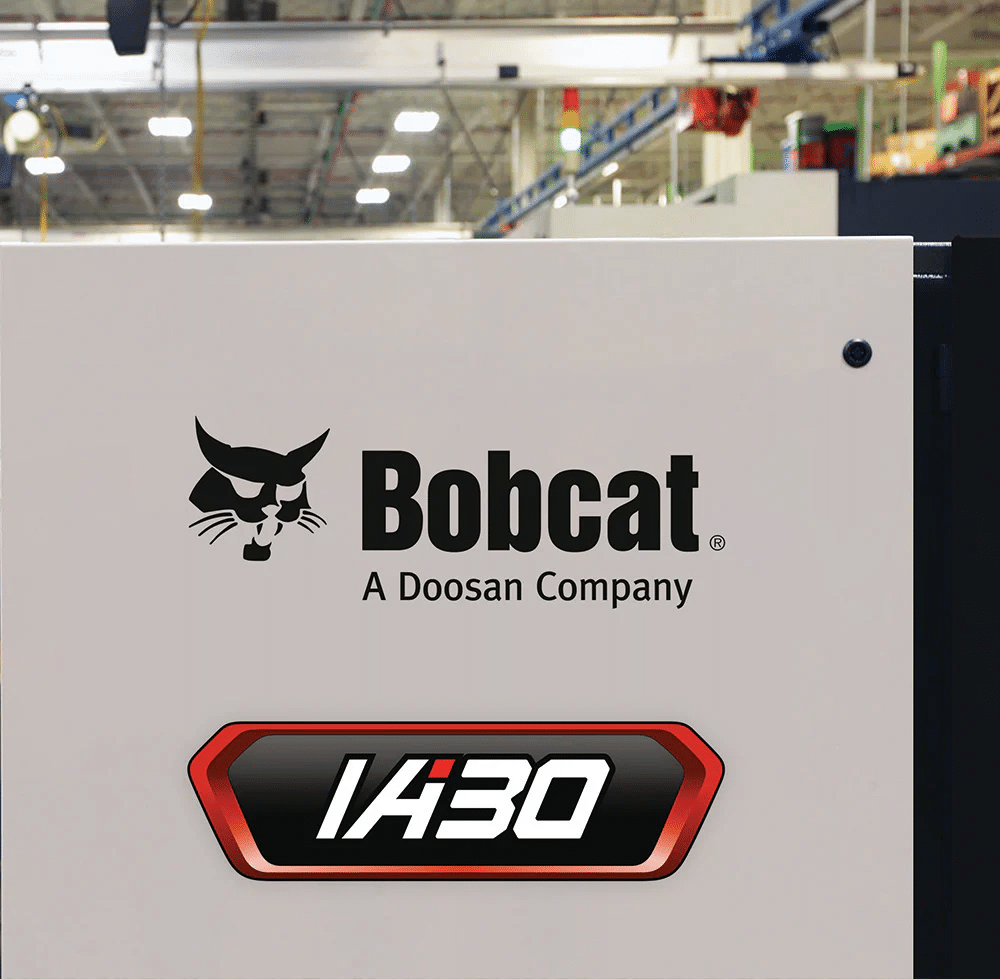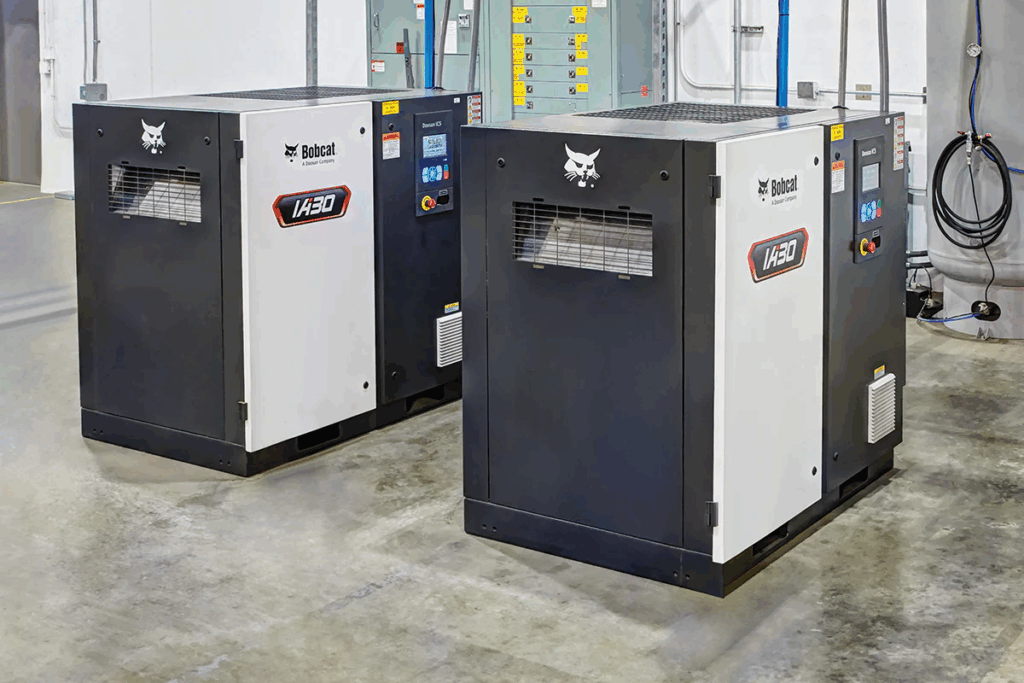Running your business gets harder when your equipment slows you down. The wrong air compressor can waste time, break down often, and drive up your energy bill.
Some compressors use up to 40% of your building’s power. That adds up fast if you’re not careful.
Many business owners pick the wrong size or type and end up overpaying or underpowered.
But when you choose the right compressor, everything runs better. You save money, avoid delays, and keep your team moving.
In this post, you’ll learn how to pick the right industrial air compressor for your business without wasting time or cash.
Know Your Needs First: What Your Business Actually Runs On

Buying an air compressor before knowing your needs is like buying shoes without knowing your size.
We already talked about how the wrong system can waste your money. Now let’s make sure that doesn’t happen to you.
Before you look at brands or prices, get clear on this:
What Tools or Machines Will It Power?
Start by listing everything that will run on compressed air. Think beyond just the obvious.
Are you running:
- Power tools in a shop or warehouse?
- Spray booths or paint systems?
- CNC machines or robotics?
- HVAC, cooling, or other automated systems?
This matters because some tools need steady airflow, while others just need bursts. That changes the compressor type you need.
How Much Air Do You Really Need?
Air compressors are measured by:
- CFM (Cubic Feet per Minute) – How much air it puts out
- PSI (Pounds per Square Inch) – How strong the air pressure is
You’ll want to look at your highest-demand tools and add some buffer (usually 25–30%) to be safe.
How Many Hours Will It Run?
Will your compressor run:
- A full 8-hour shift?
- Just a few hours a day?
- Around the clock?
The longer it runs, the stronger the system you’ll need. For example, rotary screw compressors are better for constant use. Piston models are fine for short bursts.
What’s Your Space Like?
Some systems are huge and loud. Others are compact and quiet.
Ask yourself:
- Do you need it indoors or outdoors?
- Do you have room for a tank?
- Is noise a problem?
This helps you choose between portable vs. stationary and oil-free vs. lubricated systems.
Get the Fit Right Before You Spend
Your needs shape your best options. Skip this step, and you’ll end up with the wrong fit, too weak, too loud, or too costly.
Up next, we’ll look at the different types of compressors so you can match your needs to the right model.

Compressor Types Explained: Which One Actually Fits Your Business
By now, you know what your business needs. But which type of air compressor actually fits?
Let’s break it down.
1. Rotary Screw Compressors: Best for All-Day Use
These are the workhorses. They run nonstop and don’t overheat easily.
Best for:
- Manufacturing plants
- Warehouses
- Shops that run air tools all day
Why it works:
Rotary screw compressors give steady airflow and don’t need to stop and cool down. They cost more upfront but save money long term.
2. Reciprocating (Piston) Compressors: Best for On-and-Off Jobs
This is the kind you often see in garages or small workshops.
Best for:
- Auto repair shops
- Small construction crews
- Jobs with short air bursts
Why it works:
These are cheaper and smaller. But they’re loud and can overheat if used too long. Great for part-time use.
3. Scroll Compressors: Best for Clean, Quiet Spaces
No pistons. No oil. Super quiet.
Best for:
- Medical offices
- Labs
- Food and beverage facilities
Why it works:
Scroll models are clean and low maintenance. Perfect when air quality really matters.
4. Portable Compressors: Good for Moving Around, Not Heavy Lifting
Easy to move, easy to store. But limited power.
Best for:
- Contractors who move between sites
- Short-term jobs
Why it works:
Great for mobility, but don’t expect these to power a full shop. Use them for light tools, not production lines.
If you’re considering portable tow-behind units, it helps to know how a Bobcat air compressor works and how it compares to bigger rotary screw systems.
So, Which One Do You Need?
Go back to your list:
- Running all day? Go rotary.
- Short tool use? Go piston.
- Need clean air? Go scroll.
- Always moving? Go portable.
Budget vs. Value: What Smart Buyers Look at Before Signing Off
By now, you’ve seen the types of compressors out there. But how do you choose one without blowing your budget or buying something that can’t keep up?
It’s not just about the price tag. It’s about what you get for your money.
1. Don’t Just Look at Upfront Cost
Sure, it’s tempting to go with the cheapest model. But that low price can cost more later.
Ask:
- How often will it need repairs?
- Will it handle my workload long-term?
- Does it come with a warranty?
A low-cost unit that breaks down often is no bargain.
2. Think About Total Cost of Ownership
A smart buyer looks at the lifetime cost, not just the purchase price.
This includes:
- Energy use (compressors can eat up to 40% of your power bill)
- Maintenance needs (filters, oil, service calls)
- Downtime risk (lost work = lost revenue)
Paying more upfront for a reliable, energy-efficient model often saves thousands over the years.
3. Fit Your System to Your Future, Not Just Today
Think ahead. Will your business grow? Will you add more tools or machines?
Choose a model that scales, one you won’t have to replace too soon.
4. Use the Right People
Don’t DIY a major business asset. A trusted provider can help you:
- Size the compressor correctly
- Avoid surprise costs
- Set up smart controls and monitoring
This is where it makes sense to consult a pro, not just to buy, but to get the setup right.
Talk to an Expert Before You Spend Thousands
Buying an air compressor isn’t just a quick purchase. It’s a key investment in your business.
Get it wrong, and you could face surprise costs, downtime, or early replacement. Before you spend thousands, talk to a supplier who knows your industry.
They can help you:
- Choose the right size and type
- Cut energy waste
- Plan for long-term maintenance
Want expert help that’s not pushy? Explore your options with a trusted provider and see if a maintenance plan could keep things running smoothly for years.
















